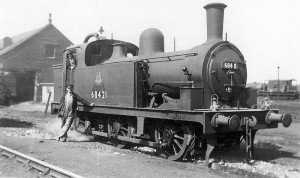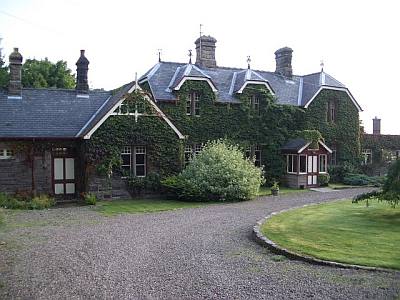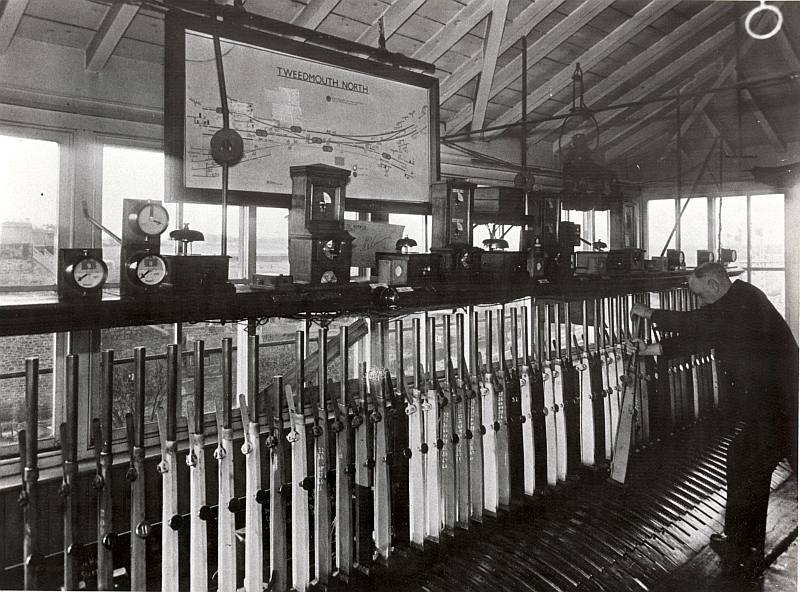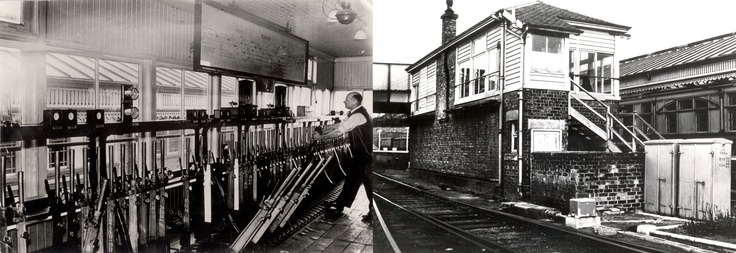
Driver T Piercy and fireman J Mackintosh beside their locomotive at Tweedmouth Shed, August 1953. © J.F Mallon.
The arrival of the railway in the mid-19th century transformed the local area, making it easier for the majority of the country’s population to travel. Visits to the seaside became popular, and local industries took advantage of the railways to transport their goods..
The railway station at Tweedmouth was opened in 1847, with the station at Berwick opening a year earlier in 1846. There were also goods marshalling yards at both stations employing hundreds of people. The Tweed Valley branch line, connecting the border towns to Tweedmouth station, opened in 1849.
Both Tweedmouth and Berwick stations were eventually connected with the opening of the distinctive Royal Border Bridge in 1850, by Queen Victoria. The station at Tweedmouth closed in 1964 as part of the Beeching cuts to railways, leaving Berwick station to serve the local community on the East Coast Main Line.
Presentation to Joseph Seals, ticket collector
An interesting article appeared in the Berwick Advertiser on 22nd April 1921. It relates to Joseph Seals, a ticket collector at Berwick railway station who was retiring after 44 years of service on the North Eastern Railway. The report takes us back to the railways in 1877 when Joseph Seals started work. From it we glean a fascinating insight into the conditions that railway workers endured, and the unions’ fight to improve them. Click here to view. (PDF)
The Network Rail Archive provides a historical insight into many areas of railway infrastructure in Britain. “The archive brings together documents that relate to our ‘engineering inheritance’, a collection that represents the development of the most significant structures, engineers and innovation on the railway from the nineteenth century to the present day.” Among the material which has been made available are documents and historical plans about the following:
The history of the railways in this region can be widely traced through its now disused stations. a number of which are still visible. Listed below are the closed railway stations of North Northumberland, covering the East Coast Main Line and the now defunct Alnwick to Cornhill Branch Line. The Disused Stations website provides histories of each station together with maps and photographs:

The former railway station at Akeld, near Wooler, which closed completely in 1965, is now a private residence. © Nigel Stickells, Creative Commons Licence (CC BY-SA 2.0)
East Coast Main Line
Alnwick – Cornhill Branch Line
Coldstream (formerly Cornhill)
Railway Track Diagrams, North Northumberland
For those interested in early 20th century railway track layouts (diagrams), the following documents offer a useful resource. To view the various diagrams click on the headings below and scroll down each PDF to view the entire diagram for that area. (© Berwick Record Office, not for reproduction.)
Beal Berwick Goswick Scremerston Smeafield
The following websites are also recommended for anyone interested in researching the railways:
The London & North Eastern Railway (LNER) Encyclopedia is a reference work documenting the history of the LNER, one of the ‘big four’ railway companies which were established in 1923.
The Railways Archive is an extensive historical repository, giving access to electronic copies of original railway documents, together with supporting data; it covers railway law, safety, economics, and politics (but not railway ephemera).
The Railscot website provides a history of the railways in Britain, with an emphasis on Scotland.

The interior of the former lever-controlled North Signal Box at Tweedmouth. © Berwick Record Office.
Banner image: (a) The interior of the former lever controlled Berwick Station Signal Box © Berwick Record Office; (b) The exterior of the former Berwick Station Signal Box © Berwick Record Office.

